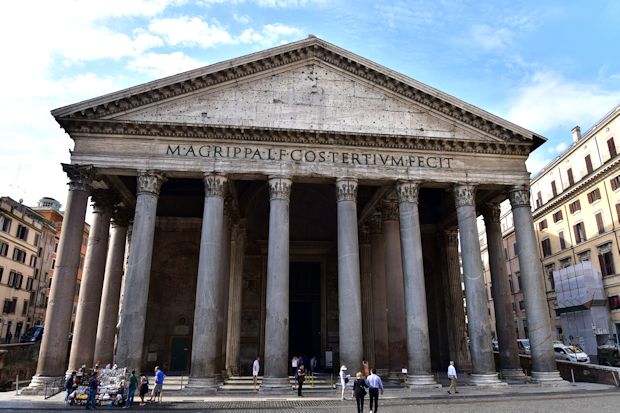NHKラジオ「まいにちイタリア語(応用編)」
「ローマを巡ろう!」
Passeggiando per Roma 第21課
(Walking around Rome)
※イタリア語を勉強する時、英語というフィルターに通すと理解が深まる気がしています。英語の勉強にもなりますしね。どちらの言語もまだまだ未熟なので、誤りなどのご指摘大歓迎です!
亜希子先生:
この課では、半過去を学びます。
マッテオ先生:
Piazza Navona.
Oh, che meraviglia! Piazza Navona è sicuramente una delle più belle piazze di Roma.
(Piazza Navona. Oh, how wonderful! Piazza Navona is certainly one of the most beautiful squares in Rome.)
亜希子先生:
そうですね。ナヴォーナ広場はローマの中でも最も美しい広場の一つ。ローマを観光する際には外せないスポットですよね。
マッテオ先生:
Chissà quali informazioni scopriremo su questa famosissima piazza.
(I wonder what information we will discover about this very famous square.)
亜希子先生:
はい、皆さんもどこかで一度は見たことがあるだろうこの広場に関して、今日は一体どんな話が出てくるでしょうか?早速聞いてみましょう。
マッテオ先生:
Ascoltiamo il dialogo.
(Let's listen to the dialogue.)
●今週のスキット
Piazza Navona
「ナヴォーナ広場」
B: Bruno Y: Yuri
Y: Che bella! Come nelle foto! Volevo venire proprio qui.
B: Sai che una volta ci mettevano tanta acqua per rinfrescare durante l'estate?
Y: Interessante!
B: Anche d'inverno è divertente. Ogni anno c'è il Mercatino di Natale.
Y: Mi piacciono tanto i mercatini di Natale. C'è qualcosa di particolare?
B: Fino a qualche anno fa c'erano molte bancarelle. Adesso sono un po' meno, ma ci sono sempre le giostre per bambini ed è molto animato.
<英訳>
Y: How beautiful! Just like the pictures! I wanted to come right here.
B: Do you know they used to put a lot of water there to cool down during the summer?
Y: That's interesting!
B: It's fun in the winter, too. Every year there is the Christmas Market.
Y: I really like the Christmas markets. Is there anything in particular?
B: Until a few years ago there were a lot of stalls. Now they are a little fewer, but there are always children's rides and it's very lively.
●La frase chiave(The key phrase)
Volevo venire proprio qui.
(I wanted to come right here.)
●Impariamo 1(Let's learn 1)
亜希子先生:
半過去の表現を学びましょう。これまで過去の行為や経験を表す時に使う近過去の表現を学びましたが、今回学ぶ半過去は過去の状態を表す形です。
▼近過去と半過去の違いは、
▼近過去が「~した」と既に完了した行為を表わすのに対して、
▼半過去の場合は「そのとき~していた」と過去において継続した動作や状態または「よく~した」と過去に繰り返し行った習慣的行動を表す点です。
それは今回のキーフレーズに出てきたvolere(want)を使って半過去の形を見て行きましょう。
★volereの半過去
io volevo, tu volevi, lui[lei] voleva
noi volevamo, voi volevate, loro volevano
<主語を省略して>
volevo, volevi, voleva
volevamo, volevate, volevano
Volevo fare il medico.
(I wanted to be a doctor.)
Volevano partire con la macchina.
(They wanted to leave by car.)
Fabio voleva dormire ancora un po.
(Fabio wanted to sleep a little longer.)
●Impariamo 2(Let's learn 2)
亜希子先生:
2つ目のポイントです。
▼半過去の活用は語尾が
-vo, -vi, -va, -vamo, -vate, -vano
▼これらの語尾を
-are, -ere, -ireのreの部分に入れる。不規則変化は少ない。
▼andare(go)
andavo, andavi, andava
andavamo, andavate, andavano
▼prendere(take)
prendevo, prendevi, prendeva
predevamo, prendevate, prendevano
▼dormire
dormiva, dormivi, dormiva
dormivamo, dormivi, dormivano
Da piccolo in estate andavo spesso al mare.
(As a child in the summer I often went to the beach.)
In Italia ogni mattina prendevamo un cappuccino al bar.
(In Italy we had a cappuccino at the bar every morning.)
Ieri a quest'ora dormivano ancora.
(Yesterday at this time they were still asleep.)
●I segreti di Roma(The secrets of Rome)
亜希子先生:
さて、今回ご紹介するローマ豆知識は?
マッテオ先生:
I diversi volti di Piazza Navona(The different faces of Piazza Navona)
「ナヴォーナ広場の変遷」
亜希子先生:
観光客で賑わうナヴォーナ広場は、現在はバロック芸術のシンボルとして有名ですが、元々は古代ローマの競技場だった場所です。当時は3万人の観客を収容していたとか。だから、細長い特殊な形をしているんですよね。
マッテオ先生:
Il nome Navona pare che derivi dal termine latino agones, ovvero giochi che appunto si svolgevano nello stadio.
(The name Navona apparently comes from the Latin word agones or games that precisely took place in the stadium.)
亜希子先生:
なるほど。ナヴォーナという名前も、この競技場で行われていた競技の名前が由来なんですね。そんな歴史の古いこの広場が新たに生まれ変わることになったのが、17世紀の教皇インノケンティウス10世の時代。
マッテオ先生:
La Fontana di Quattro Fiumi al centro della piazza fu costruita proprio sotto Innocentius decimo da Bernini, il maestro del barocco.
(The Fountain of Four Rivers in the center of the square was built just under Innocentius the Tenth by Bernini, the master of the Baroque.)
亜希子先生:
そう。広場の中でも一際目を惹く中央の四大河の噴水は、まさにこの教皇の時代にバロックの巨匠ベルニーニよって造られたものなんです。また、今回のスキットの中でブルーノが説明していたように、この広場に水を張るようになったのも教皇の時。
マッテオ先生:
A quanto pare in agosto si bloccavano le chiuse tre fontane in modo da allargare la piazza che veniva quindi chiamata il lago di Piazza Navona.
(Apparently in August the three fountains were blocked to widen the square which was then called the lake of Piazza Navona.)
亜希子先生:
8月の週末には3つの噴水の排水口を塞いで広場の中央に水をはっていたなんて、なんとも贅沢な楽しみ方ですよね。しかもこのイベント、なんと19世紀まで続いていたんですよ。
マッテオ先生:
Peccato che adesso non si possa più assistere a questo spettacolo.
(It's a shame that we can no longer see this show now.)
亜希子先生:
そうですね。水を張ったナヴォーナ広場がもう見られないのは残念ですね。そのかわり、今は冬に別の楽しみ方があるのですが、でもそれは次回のお楽しみにしておきましょう。
●Proviamo.(Let's try.)
①Durante le vacanze, ogni mattina andavo al bar.
(During the holidays, I went to the bar every morning.)
②Da piccola Laura mangiava spesso questi dolci.
(As a child, Laura often ate these sweets.)
③Volevano rimanere ancora un po.
(They wanted to stay a little longer.)
亜希子先生:
今回は半過去の表現を学びました。それではまた次回!
亜希子先生:
マッテオ先生:
Ciao ciao!
【ナヴォーナ広場】
UnsplashのMarialaura Gionfriddoが撮影した写真
※この広場に水をはっていたとはなかなか想像できないのですが、どんな様子だったのでしょうか?まさか地球温暖化の影響で水浸しのヴェネツィアみたいな状況ではないですよね。
UnsplashのMichele Bitettoが撮影した写真
【ナヴォーナ広場にある『四大河の噴水(Fontana dei Quattro Fiumi)』】
※ベルニーニが造ったものだそうです
(下記サイトより)



